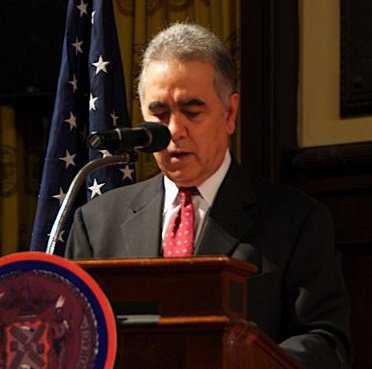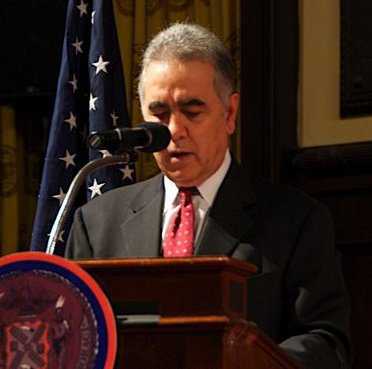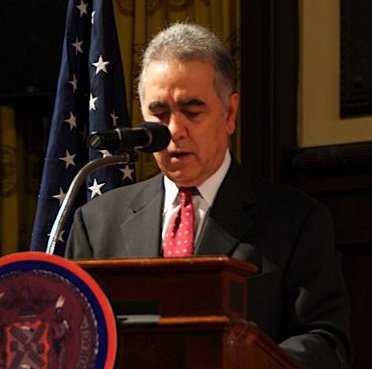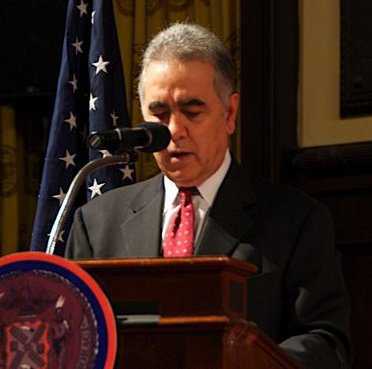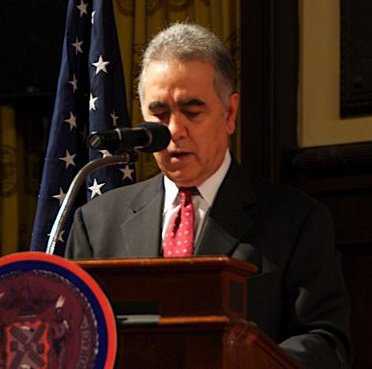
|
Turkey suffered a major setback last week when the U.S. House of Representatives overwhelmingly approved a landmark resolution calling on the Turkish government to return over 2,000 confiscated Christian churches and other properties “to their rightful owners.”
This victory is particularly significant as it comes at a time when Turkey is said to be at the apex of its power both regionally and internationally. Yet, despite its considerable political and economic clout, neither the Turkish regime nor its high-powered lobbyists could openly oppose a congressional resolution intended to protect the religious rights of Christian minorities in Turkey. This is the reason why, when the resolution was first submitted to the House Foreign Affairs Committee on July 20, as an amendment to the State Department’s Foreign Relations Authorization Act, it was easily adopted by a vote of 43-1.
Just before the resolution came up for a vote on the House floor on December 13, the State Department, at Turkey’s request, made discreet but ultimately futile efforts to derail it. Turkish-American groups also unsuccessfully lobbied against the resolution. Neither the House Republican majority nor the Democratic minority heeded their denialist demands. The strong bipartisan consensus paved the way for the resolution to overcome the hurdle of needing over two-thirds of the House votes for passage, since the motion was presented under a special parliamentary procedure known as the Suspension Calendar.
The Turkish government and its high-priced lobbying firms were greatly embarrassed when only one member of Congress rose on the House floor to speak and vote against the resolution. Even then, Cong. Ed Whitfield (R-KY), a co-chair of the Congressional Caucus on Turkey, readily acknowledged that not “very many people would oppose” this bill! He then added: “The mere fact that the resolution is being introduced would leave an objective observer with the intent (sic) opinion that religious freedom is being systematically denied in Turkey!” After rambling on for a few more minutes and running out of things to say, Cong. Whitfield yielded the balance of his time to his opponents — the supporters of the resolution!
After such a devastating defeat, the Turkish Foreign Ministry did not have much to say, except to express its disappointment. This is standard Turkish practice — initially
applying heavy pressure and making threats to prevent an unfavorable decision, and after losing the vote, dismissing the bill as being unimportant, in order to hide their embarrassing failure. If the Turkish government did not think the bill was important, why did it turn the world upside down in trying to defeat it?
In attempting to fool the unsuspecting public, Turkish officials claimed that the resolution was merely adopted by two to one vote, without explaining that during voice votes, most House members are not usually in the Chamber. Once the leadership of the two parties comes to an agreement on an issue, only a handful of members are then required to adopt the bill. The real question that Turkish authorities must answer is why only one Congressman out of 435 voted against the resolution? This episode demonstrates that the new Ottoman emperor has no clothes!
Even though this resolution is not binding, unless the Senate also adopts it and the President signs it into law, it is still a significant breakthrough for all Christian minorities in Turkey whose properties have been confiscated for decades. Encouraged by this positive development, the Armenian, Assyrian, and Greek communities will continue their active collaboration to pressure Turkey to restore their historic rights.
For Armenians worldwide, this is the first time that the U.S. Congress has demanded restitution from Turkey, rather than mere recognition of the Genocide. This resolution could serve as an impetus for other countries and international organizations to follow suit, demanding the restoration of property rights in Turkey. Henceforth, the Turkish government has to be much more cautious when trampling on these rights, knowing full well that the international community is keeping a watchful eye on its recurring violations.
The successful passage of this bill will energize Armenians around the world to continue the struggle for restitution of their losses during the Genocide. Regrettably, no clergyman or official in Armenia has said a single word on this important issue, as if the fate of Armenian churches in Turkey is of no interest to them! Wouldn’t it be in Armenians’ best interest if Armenia joined with the Diaspora to seek restitution, particularly in view of Pres. Sargsyan’s recent declaration in Marseille, France, demanding “justice” from Turkey?
|


